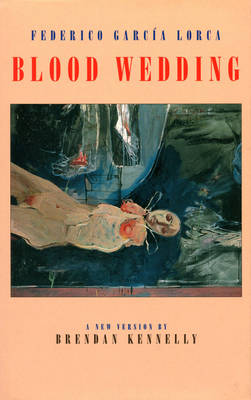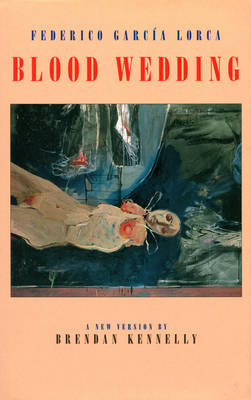
- Retrait gratuit dans votre magasin Club
- 7.000.000 titres dans notre catalogue
- Payer en toute sécurité
- Toujours un magasin près de chez vous
- Retrait gratuit dans votre magasin Club
- 7.000.000 titres dans notre catalogue
- Payer en toute sécurité
- Toujours un magasin près de chez vous
15,45 €
+ 30 points
Format
Description
Blood Wedding by Federico García Lorca is a classic of Spanish literature, the tragedy of a woman loved by two men. The man she has loved since childhood is hot-blooded Leonardo, but his family are hated by her own folk, and he marries someone else. Then, on her wedding-night, Leonardo carries her off on horseback, pursued by the men of the two shamed families. The two rivals meet in the moonlight in a ?ght to the death... Lorca said the only hope for happiness lies in 'living one's instinctual life to the full'. And: 'To burn with desire and to remain silent is the greatest punishment we can in?ict on ourselves.' Blood Wedding explores the tragic intensity of lived, instinctual passion. For Brendan Kennelly, this involves a return to the very origins of drama: 'The pure pulsing sense of the mysterious nature of life before we learn to explain things almost out of existence ... Blood Wedding is a drama of agonised and bewildering revelation.' Lorca has a searing realisation of the power of desire. Brendan Kennelly rises to the challenge of how to convey this in an English translation. In language at once soaring and accurate, wild and precise, he does justice to Lorca's tragic vision of the nature and consequences of lived desire. His version of Blood Wedding reveals the mysterious, intricate, passionate and truly astonishing nature of Lorca's masterpiece. Brendan Kennelly's versions of Euripides' The Trojan Women and Medea, and Sophocles' Antigone, are published by Bloodaxe Books in his drama trilogy When Then Is Now: Three Greek Tragedies (2006). His version of Lorca's Blood Wedding was premièred by Northern Stage in Newcastle and Derby in autumn 1996. His Antigone and The Trojan Women were both first performed at the Peacock Theatre, Dublin, in 1986 and 1993 respectively; Medea premièred in the Dublin Theatre Festival in 1988, toured in England in 1989 and was broadcast by BBC Radio 3.
Spécifications
Parties prenantes
- Auteur(s) :
- Editeur:
Contenu
- Nombre de pages :
- 80
- Langue:
- Anglais
Caractéristiques
- EAN:
- 9781852243555
- Date de parution :
- 24-10-96
- Format:
- Livre broché
- Format numérique:
- Trade paperback (VS)
- Dimensions :
- 121 mm x 216 mm
- Poids :
- 136 g







